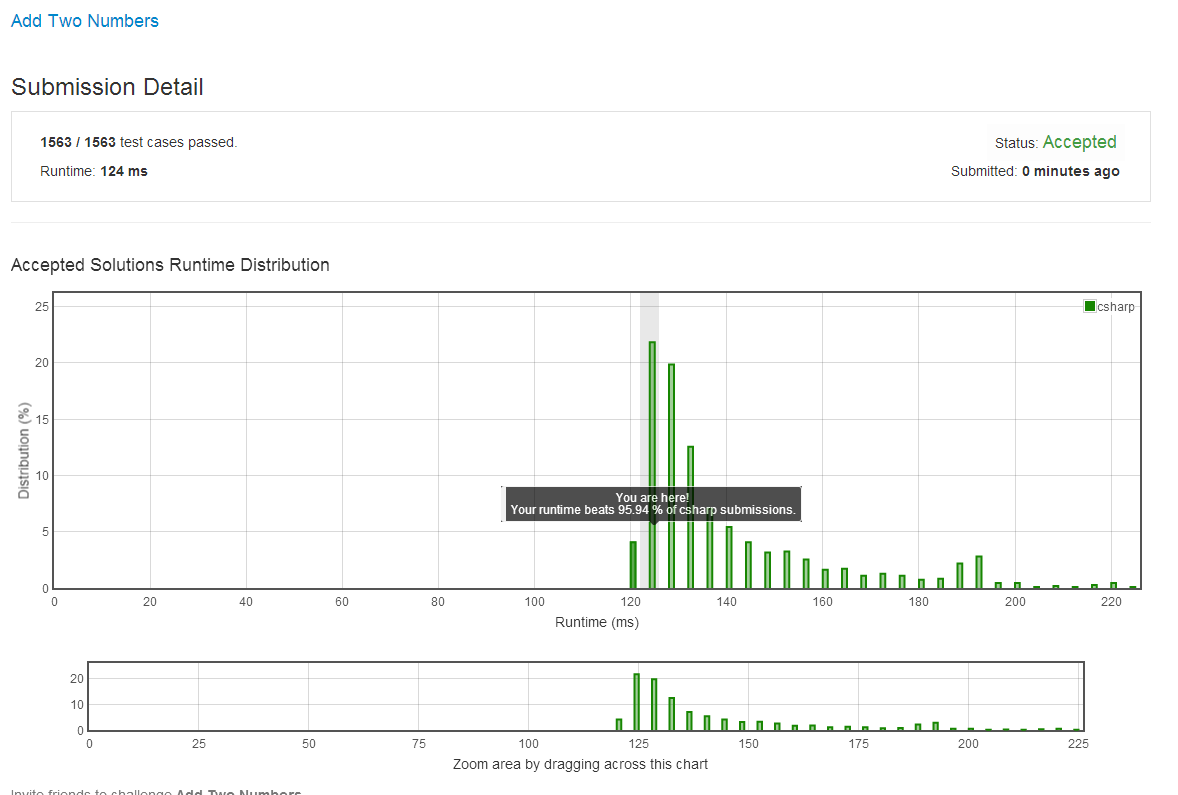You are given two non-empty linked lists representing two non-negative integers. The digits are stored in reverse order and each of their nodes contain a single digit. Add the two numbers and return it as a linked list.
You may assume the two numbers do not contain any leading zero, except the number 0 itself.
Example:
Input: (2 -> 4 -> 3) + (5 -> 6 -> 4) Output: 7 -> 0 -> 8 Explanation: 342 + 465 = 807.
题目描述:两个非空链表,代表两个非负整数。链表从尾部到头部每一个元素代表非负整数的每一位的值。技术这两个数的值,并把结果放到一个链表中。
我的思路:链表长度不限,所以不能转成int 或者long 进行计算。同时 每一位进行计算的时候,会有进位产生。下面是我的解法
/** * Definition for singly-linked list. * public class ListNode { * public int val; * public ListNode next; * public ListNode(int x) { val = x; } * } */ public class Solution { public ListNode AddTwoNumbers(ListNode l1, ListNode l2) { ListNode res = new ListNode(0); ListNode temp = res; bool flag = false; int sum = 0; while(l1 != null && l2 != null){ temp.next = new ListNode((l1.val + l2.val + sum)%10); sum = (l1.val + l2.val + sum)/10; l1 = l1.next; l2 = l2.next; temp = temp.next; } while(l1 !=null){ temp.next = new ListNode((l1.val + sum)%10); sum = (l1.val+sum)/10; l1 = l1.next; temp = temp.next; } while(l2 !=null){ temp.next = new ListNode((l2.val + sum)%10); sum = (l2.val+sum)/10; l2 = l2.next; temp = temp.next; } if(sum != 0) temp.next=new ListNode(1); return res.next; } }
